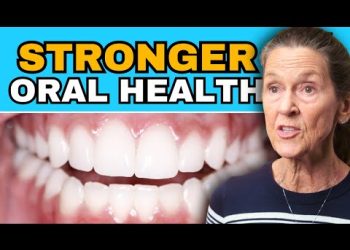Introduction: The Connection Between Oral and Gut Health
Did you know that your oral health can significantly impact your gut health? Dr. Pal Manikam, a gastroenterologist, shares intriguing insights into how the bacteria in your mouth are foundational to the bacteria in your gut. In this article, we’ll explore three vital oral health tips that you’ll wish you had known sooner, to ensure the well-being of your gut and overall health.
Understanding the Bacterial Ecosystem in Your Mouth
Your mouth is home to a staggering 100 billion bacteria, consisting of both good and bad varieties. This oral ecosystem is crucial as it acts as the gatekeeper for bacteria entering the gastrointestinal tract. Understanding the balance of bacteria in your mouth can help in preventing gut-related issues such as diabetes and hypertension.
The First Common Mistake: Bedtime Snacking
Consuming snacks, especially those high in sugar like chocolate and ice cream, right before bed is a common mistake. Dr. Pal emphasizes that these sugary snacks feed harmful bacteria in your mouth, leading to acid production that degrades tooth enamel, eventually causing cavities.
The Role of Saliva in Oral Health
Saliva plays a critical role in maintaining a neutral pH in your mouth and aids in the remineralization of teeth. Late-night snacking alters the pH and affects the saliva’s ability to repair your teeth. Dr. Pal suggests at least 12 hours of fasting or time-restricted eating to support this natural process.
Tip 1: Avoid Late Night Eating
Dr. Pal’s first crucial tip is to avoid any food consumption late at night. This helps maintain oral pH and allows saliva to effectively remineralize your teeth overnight, supporting overall oral health.
Common Issue: Bad Breath
Bad breath is a prevalent issue that can often be mitigated by regular flossing and tongue cleaning. These practices reduce food particles and bacteria in the mouth, promoting fresher breath and better oral hygiene.
Tip 2: Brush Your Teeth at Night
While many remember to brush their teeth in the morning, nighttime brushing is often neglected. Dr. Pal notes this is crucial because it removes food particles that would otherwise feed bacteria overnight, potentially causing plaque and tarter build-up.
The Significance of Flossing
Flossing is underscored as an essential practice to reach areas that toothbrushes cannot. This routine is vital for removing hidden food particles and reducing bacterial load, ultimately supporting gut health by preventing bad bacteria from thriving.
Tip 3: Make Flossing a Habit
Dr. Pal highlights flossing as an often overlooked but critical habit. Despite brushing regularly, food particles can remain trapped between teeth, paving the way for bacterial growth. Consistently flossing ensures a cleaner mouth and healthier gut bacteria balance.
Conclusion: Prioritizing Oral Health for Better Gut Health
In summary, Dr. Pal stresses the importance of oral health in maintaining a balanced gut microbiome. By avoiding late-night snacks, ensuring regular brushing, and adopting a flossing routine, you can significantly improve your oral and gut health. Prioritize these simple practices for better long-term health outcomes.











